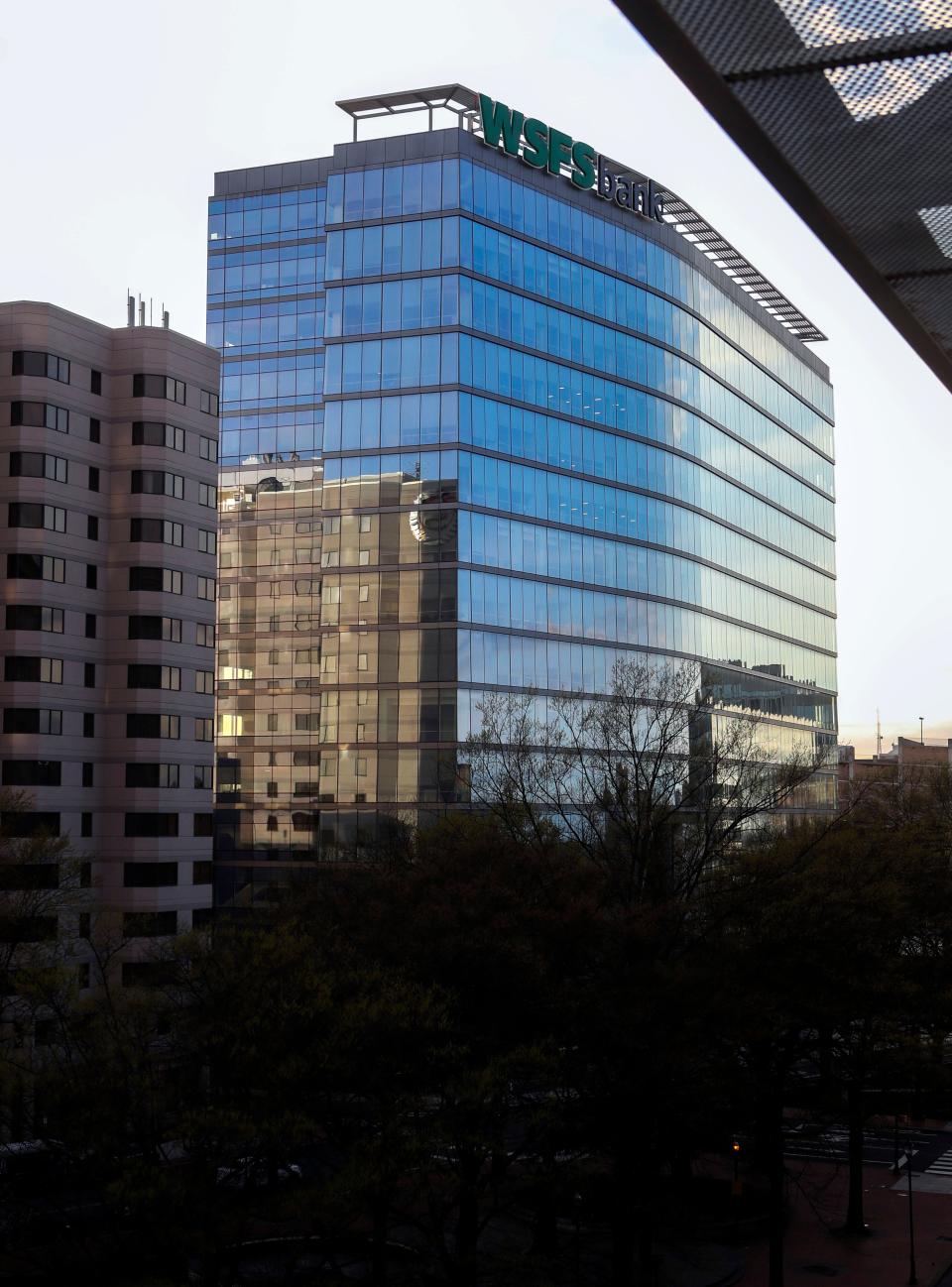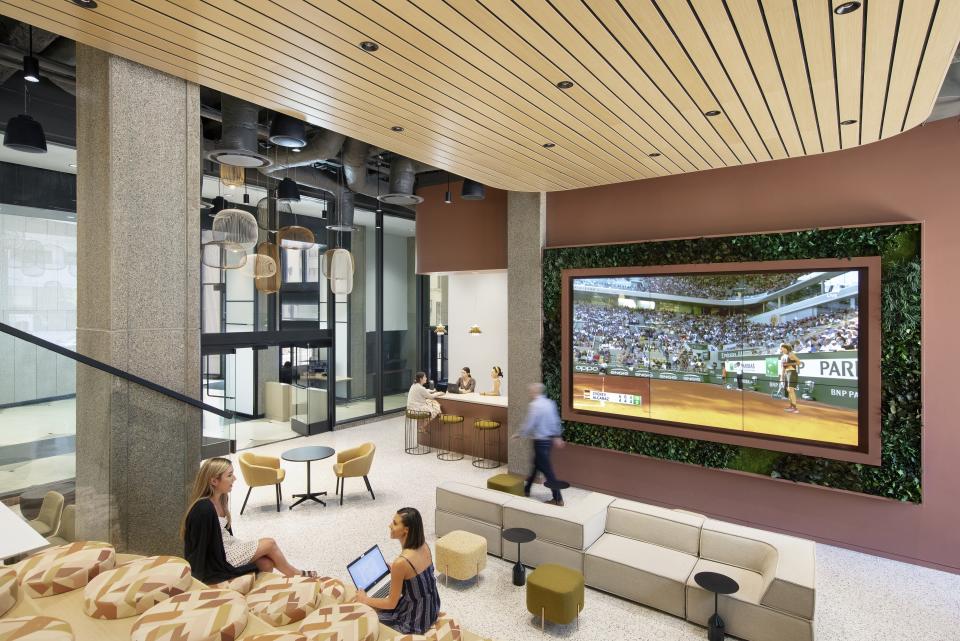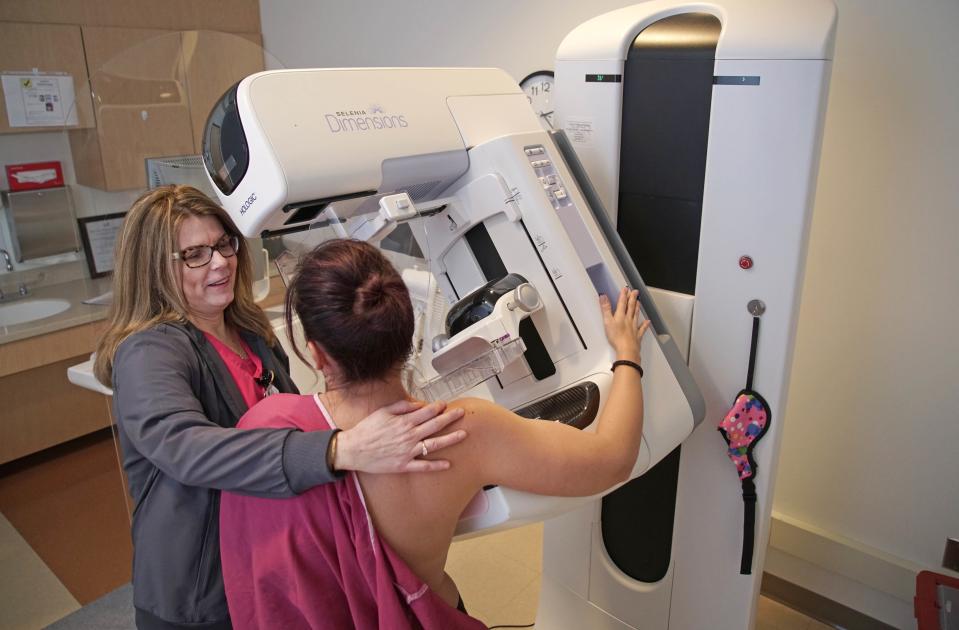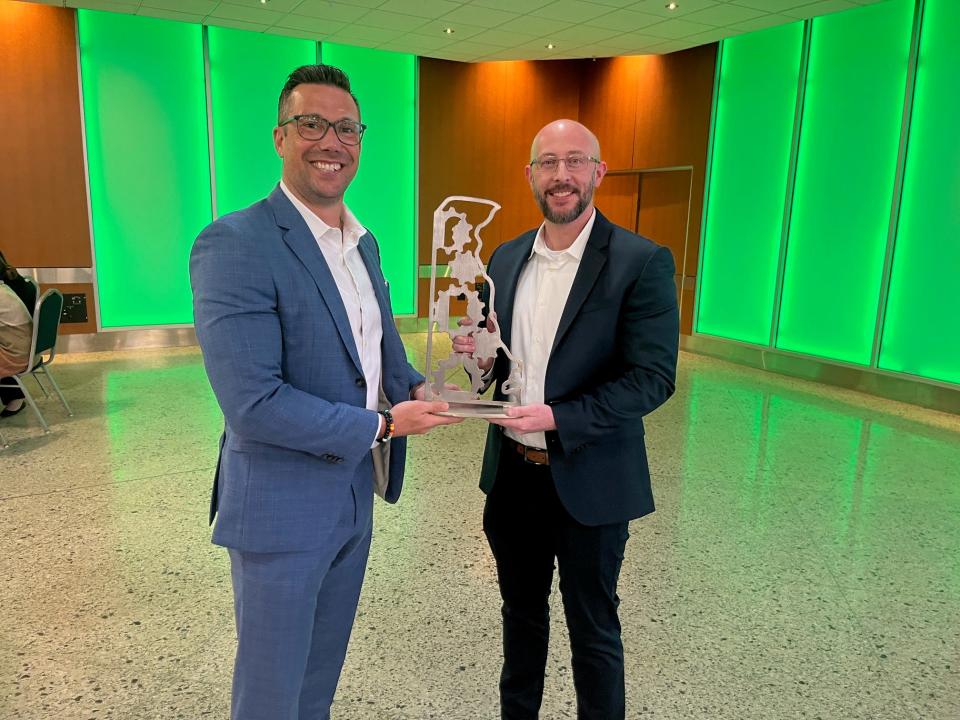The usual culprit for economic woes is a lack of jobs. But during his final State of the State address in March, Delaware Gov. John Carney offered a perhaps unexpected complaint.
“We still have more jobs available than we have people looking for work,” he said. “Right now, there are 31,000 jobs available, but only 21,000 people looking for work.”
This line had become a theme for the governor in speeches all over the state over the previous months, in addresses to chambers of commerce and small business groups.
When Carney came into office eight years ago, Delaware’s economy had been at a decadelong standstill, sluggish to find new growth and new jobs.
Now, the jobs have finally arrived. The labor market in Delaware has added 30,000 new positions since 2017, more than 5% of the total workforce, according to statistics kept by Delaware’s Department of Labor. Two-thirds of these jobs arrived in just the past two years.
But the same cannot be said of the workforce. Delaware has one of the lowest workforce participation rates in the country, a fact highlighted in a scathing report this year by business group the Delaware Business Roundtable, which attributed the problem to Delaware’s aging population, poor access to child care and a troubled education system.
More: Delaware has an identity problem, new report says. And it will hold us back
The U.S. Chamber of Commerce listed Delaware’s worker shortage as among the more severe in the region, with just 63 workers for every 100 jobs.
So who will fill the jobs that will keep Delaware’s economy on the upswing, and make it a place companies want to invest? And how can Delaware employers attract and keep a new generation of workers?
For the 18th year, Delaware Online/The News Journal partnered with HR firm Energage to poll employees at companies all over the state to find Delaware’s Top Workplaces: the companies and organizations where employees feel the most valued, and the most confident in their company’s direction.
Delaware’s 2024 Top Workplaces: See who made the cut. Here’s our full list
Delaware Online/The News Journal was the first newspaper in the country to do so, in a program that now spans the nation.
This year, we decided to ask some of those top firms about the challenges they face in finding people to work — and how they’ve found success.
Delaware companies must now compete to bring in employees

The WSFS Building at 500 Delaware Ave. in Wilmington. WSFS Bank was named one of the top large workplaces in Delaware in 2024.
Perhaps one of the most significant tidal changes wrought by the COVID-19 pandemic has been a wholesale re-examination of the relationship between employers and workers — as the economy and the nation’s population reshuffled itself like a deck of cards, Baby Boomers took early retirements, immigration stalled and workers re-evaluated their priorities during time spent at home.
“I would be surprised to hear of an employer in any state who isn’t working harder to find and keep employees,” wrote WSFS Bank’s vice president of human resources Lisa Brubaker. “In addition to competitive compensation and benefits, potential employees look for work/life balance, a strong workplace culture, and the ability to grow their careers.”
At law firm Morris James, a Delaware fixture for nearly a century, COO Sherry Leary and her team believe that the COVID-19 pandemic has “significantly altered the employment landscape, with hybrid working models becoming the norm.”
For Wilmington Montessori School, those challenges dovetail with a nationwide crisis in hiring teachers, with counties in greater Philadelphia facing hiring shortages observers call severe.
“Fewer teachers are joining the field, so the number of qualified teaching candidates seeking jobs has noticeably decreased,” said WMS incoming head of school Sarah Williams. “Potential employees are seeking a balance between their work and personal lives. They want to work for employers that recognize that need for balance and value their well-being.”
Even the Wilmington office market has had to adjust. As much office space has gone fallow with workers increasingly working from home, firms have increasingly invested in smaller but more state-of-the art “Class A” spaces. To attract tenants, buildings have amenities like in-house gyms, upscale food courts, shared community areas with giant flatscreens or cascading river views and even TopGolf simulators — all designed to entice workers to want to come to work.


The ground floor of Buccini Pollin Group’s 1000 N West building, better known as the Brandywine Building, offers amenities such as collaborative spaces and stadium seeting for video screenings.
As Buccini-Pollin Group principal Chris Buccini put it in an interview earlier this year: “The key is, if you’ve got a Class B or Class C building, you’re toast.”
More: Wilmington has the worst office vacancy of this millennium. So why’s everyone so happy?
Employees increasingly want a sense of meaning and purpose from their work


Katherine Esdale, a breast imaging technologist at the Helen F. Graham Center, conducts a 3-D mammogram using a tomosynthesis machine made by Hologic. The machine’s core technology is made at Hologic’s plant near Glasgow. Katherine Esdale, a breast imaging technologist at the Helen F. Graham Center, conducts a 3-D mammogram in February using a tomosynthesis machine made by Hologic. The machine’s core technology is made at Hologic’s plant near Glasgow, Del.
While benefits and amenities may be what helps attract employees to a company in the first place, survey responses show community, and a sense of purpose, to be the most common things employees cite when asked why they like their jobs.
WSFS vice president Brubaker cites in part the bank’s generous parental leave policy as a draw, as well as mentorship programs and partnerships with groups like Leadership Delaware.
Indeed, when asked why they liked their jobs in survey results, WSFS employees most often said it was because their job involved helping people, that they felt supported by their managers and that they were given opportunities to learn and advance. Worker after worker also cited a program in which WSFS offers employees four hours paid time to volunteer at a community organization of their choice.


Hologic Inc. senior director of operations Brian Brooks, left, and manufacturing senior manager Mike Washko hold the “Coolest Thing in Delaware” trophy for Hologic’s 3D mammography systems.
At the Newark campus of medical device company Hologic, whose mammography imaging system was named the “Coolest Thing Made in Delaware” this year, that sense of purpose comes in part from the lives the company’s work helps save.
“In many cases, this mission resonates personally with our employees. It is this connection with the mission that reinforces the “why” behind the exceptional work completed by our team… This connection with the purpose of our organization is at the core of our ability to not only recruit, but retain, talent at all levels of our team.” wrote Brian Brooks, the Newark-based vice president for the company’s breast and skeletal health teams. The company’s support of women’s health nonprofits also helps it reach potential employees devoted to the company’s mission, Brooks said.
Again, this sense of mission was backed up in the company’s survey results from employees, who again and again cited saving women’s lives as a primary reason they wanted to come to work each day.
At Morris James, attorneys most often cited community among coworkers as their reason for job satisfaction — and also had more confidence in their company’s leadership than employees at any other midsize company in Delaware, offering superlatives about managing partner Keith Donovan that might make us blush.
Among small organizations in Delaware, the newly ascended Sarah Williams at Wilmington Montessori School inspired the most faith among staffers. Among large companies, that honor went to CEO Paul Ricci at financial company Best Egg.
But interestingly, at Long & Foster real estate, the large firm with the greatest listed job satisfaction among employees in the state of Delaware, the most common reason for job satisfaction was not community. It was instead independence and good training opportunities — and perhaps also a particular notion of fairness.
“I have total autonomy…. The effort I put into my work is directly proportionate to the financial reward I get out of it,” wrote one. “I don’t have to work hard and wait for a disconnected boss to decide if I’ve earned a modest annual increase.”
Delaware workers are not very happy compared to the rest of the country


A tugboat heads south on the Delaware River with the Wilmington skyline in the background.
But if the responses at some of the top workplaces paint a rosy picture, the survey overall does not describe a state full of happy campers. Delaware workers overall are less happy than they were last year, and less happy than workers in other states.
Benefits are the only category in which Delaware workers are happier than workers in the nation as a whole — and they’re not overly happy about that, either. A small majority of Delaware workers surveyed, 57.4%, believe their benefits are good compared to other workers. This is slightly better than the 56.9% of workers across the country who believe this.
But in every other measure, from fair pay to confidence in their manager or their company leadership, Delaware is less happy than the rest of the country, often by significant margins. They’re more likely to think their coworkers are clueless, and more likely to think their managers are clueless.
Delaware workers are also far less loyal than those in other states: 47% of Delawareans say they’ve spent time in the past month looking for a different job, compared to 40% of workers across the nation.
Think of it this way: Maybe Delawareans just have high standards?
But if so, those standards are higher by the year. The nation experienced an ever-so-slight increase in positivity in 2024 versus the previous year, on almost every measure of job satisfaction, according to survey results. In contrast, people in Delaware feel worse about their jobs by every measure this year than last year — in some cases by significant margins.
The worst year-over-year drops were in job loyalty, perceived company transparency, and in employees’ sense that they felt appreciated. About 83% of Delawareans felt at least “slightly’ appreciated by their company in 2023, vs 77% this year.
If you’re curious about which company Delawareans felt the most appreciated, that honor this year went to Wilmington-based Bancroft Construction. Some Bancroft employees cited opportunities offered, or the trust placed in them, as what made them feel appreciated by their company. Some cited pride in a job well done, after getting paid to “work outside with dirt.”
But one was quite blunt about what makes them feel appreciated: a firm incentive program.
The employee wrote two words, and two words alone, about what made them feel loved: “Bancroft bucks.”
Matthew Korfhage is business and development reporter in the Delaware region covering all things related to land and money: openings and closings, construction, and the many corporations that call the First State home. Send tips and insults to mkorfhage@gannett.com.
This article originally appeared on Delaware News Journal: Here’s how Delaware top workplaces attract and keep workers





